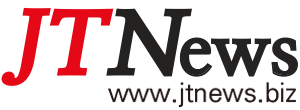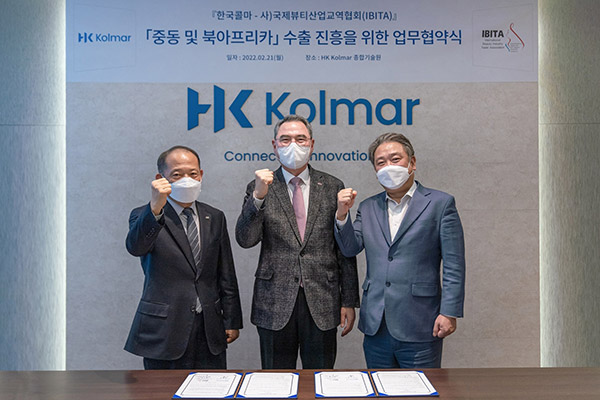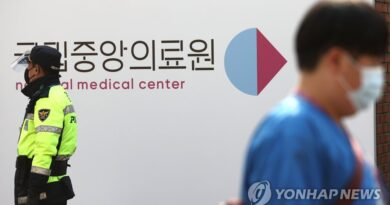Kolmar Korea and IBITA to export cosmetics to the Middle East and North Africa
Kolmar Korea is the first Korean cosmetics ODM company to put a flag of K-beauty in the Middle East market.
Kolmar Korea signed a business agreement with the International Beauty Industry Trade Association (IBITA) on the 21st to promote exports to the Middle East and North Africa (MENA). The signing ceremony was attended by Ahn Byung-joon, CEO of Kolmar Holdings Korea, Choi Hyun-kyu, CEO of Kolmar Korea, and Yoon Ji-taek, chairman of IBITA.
IBITA is a non-profit corporation that received permission from the Ministry of SMEs and Startups in 2012 to strengthen the export capabilities of the Korean cosmetics industry. It serves as a Korean representative to support the domestic cosmetics industry’s advance into the Middle East through a business agreement with the UAE ESMA in 2018.
With this agreement, Kolmar Korea exclusively develops and produces cosmetics from customers in the Middle East through IBITA, and IBITA actively supports local promotion and distribution. In the future, the two companies also plan to establish a cooperative system to help Kolmar Korea’s customers enter the Middle East.
Currently, Kolmar Korea has established a “halal guarantee system” for the production of basic and color cosmetics at its Sejong plant and Bucheon plant, respectively, to enter the Middle East cosmetics market. This is to actively respond to Halal cosmetics certification, which has strict production conditions. Halal certification is an essential element for entering Islamic cultures such as the Middle East and is given to products that Muslims are allowed to eat and use. In particular, halal cosmetics certification should not include raw materials or banned ingredients derived from pigs, and production conditions are strict, such as having a dedicated production line.
“With this agreement, we will expand our overseas business centered on China and North America to the Middle East and North Africa to expand our competitiveness in the global market,” said Choi Hyun-kyu, CEO of Kolmar Korea.
“We expect synergy with Kolmar Korea as demand for Korean cosmetics continues to increase in the Middle East,” said Yoon Jip, chairman of IBITA. “We will work with Kolmar Korea to improve K Beauty’s entry into the Middle East.”
Meanwhile, the size of the Middle East cosmetics market continues to grow every year. According to Euromonitor, the size of the Middle East cosmetics market is expected to increase to $20.5 billion in 2019 and $24.6 billion in 2022.









